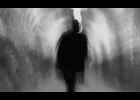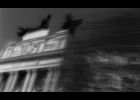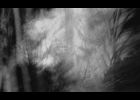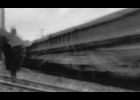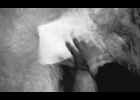Do nada, a natureza – língua e realidade em Vilém Flusser
This essay presents the way in which Vilém Flusser conceives the idea of nature in his philosophy, especially in Língua e Realidade but also in Natural:mente – vários acessos ao significado de natureza. This notion leads to a poetic vision of what we call nature. In Língua e realidade, Flusser states that language creates reality. In his theory of language he will propose that nature is the mode of reality that results from the poetic activity of language. Our hypothesis is that the ecological crisis is also the result of the epistemic privilege of the scientific view of nature, which translates into its instrumentalization. We would need a more poetic and intuitive perception of nature, like the one Ailton Krenak presents in his books. It would be worth considering whether the ecological crisis and its call for the emergency of a new planetary sensitivity and consciousness are not indicating to us the need to relearn how to listen to the world.
Schwarzweiß als Code / Black-and-White as a Code
Sand
The following is an excerpt from Anne Popiel’s book Of Pixels and Particles. The digital connection between nature and art in Vilém Flusser’s philosophy . Published in 2012, it explores metaphorical connections between sand grains, droplets, bits, pixels and particles, linking the ocean of the Vampyroteuthis to moving sand dunes and the screen of the computer. “Flusser’s response to groundlessness is to create one’s own ground out of thin air, modeled by oceans, squids, spider webs and sand” (Popiel 2012: 14). His “metaphors translating sand grains into pixels and wind turbulence into algorithms highlight the digital structures present in both nature and computer technology that create an environment conducive to the spontaneous emergence of new order” (ibid.:54).
A natureza de Vilém Flusser: experiências limites
In the book O mundo codificado, Vilém Flusser claims that the purpose of life is to make us forget the lack of sense in life, which constantly moves us towards death. We are subjected to it in nature's domain. According to Flusser, human communication is unnatural given that its goal was once to organize and store information. However, we ask, is it really possible to oppose culture and nature as entropy and negentropy, the given and the constructed? This article discusses the concept of nature proposed by Vilém Flusser in relation to the representations of nature in the works of the writer Guimarães Rosa and of the botanist C.F.P. Von Martius.
Mensch oder Landschaft – was war zuerst da? Antworten aus Vilém Flussers Vogelflüge
The essay is dedicated to the relationship of nature and culture. Landscapes are formed by natural and cultural influences. Cultural influences include two components: the changes on the land made by men and the changing ideas about landscape. Landscapes are concepts; therefore they cannot exist without men. Flusser explores this theme by describing his visit to the French Jura Mountains. He outlines how, first animals and later men used the Ofenpass, a pathway in the Alps. Separated river valleys were transformed from natural areas to landscapes, which can be regarded as men’s homes.
